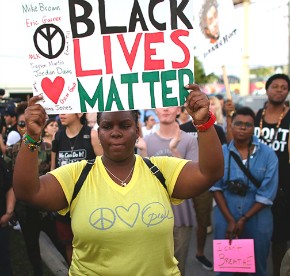Who matters to us?

When NBC news anchor John Chancellor retired in 1993, a reporter asked him what was the most memorable moment in his 43 years of reporting. Chancellor didn’t mention Vietnam, or Watergate, or the Kennedy assassinations. Instead he began to describe an experience from the 1964 Republican National Convention.
Not surprisingly, black delegates were scarce on the convention floor that year—the nominee was Barry Goldwater, who was opposed to the Civil Rights Act of 1964. The few black Republicans who were present were anti-Goldwater. Chancellor recalled stumbling upon an older African-American man toward the back of the assembly hall who was holding on to a pillar. The man was weeping. Chancellor could hear the man mumbling beneath tearful heaves, “All my life . . . all my life.” At first the newsman and his aide thought the man had fallen. But when they leaned in closer, Chancellor saw that the man’s sport coat was riddled with cigarette burn holes.
A racist delegate had decided that this man would be his personal ashtray and, adding further insult and cruelty, other delegates had joined him. “The pain and anguish on that man’s face is something I will go to the grave remembering,” said Chancellor. In four-plus decades of reporting, it was this image of one black man’s face that endured.




